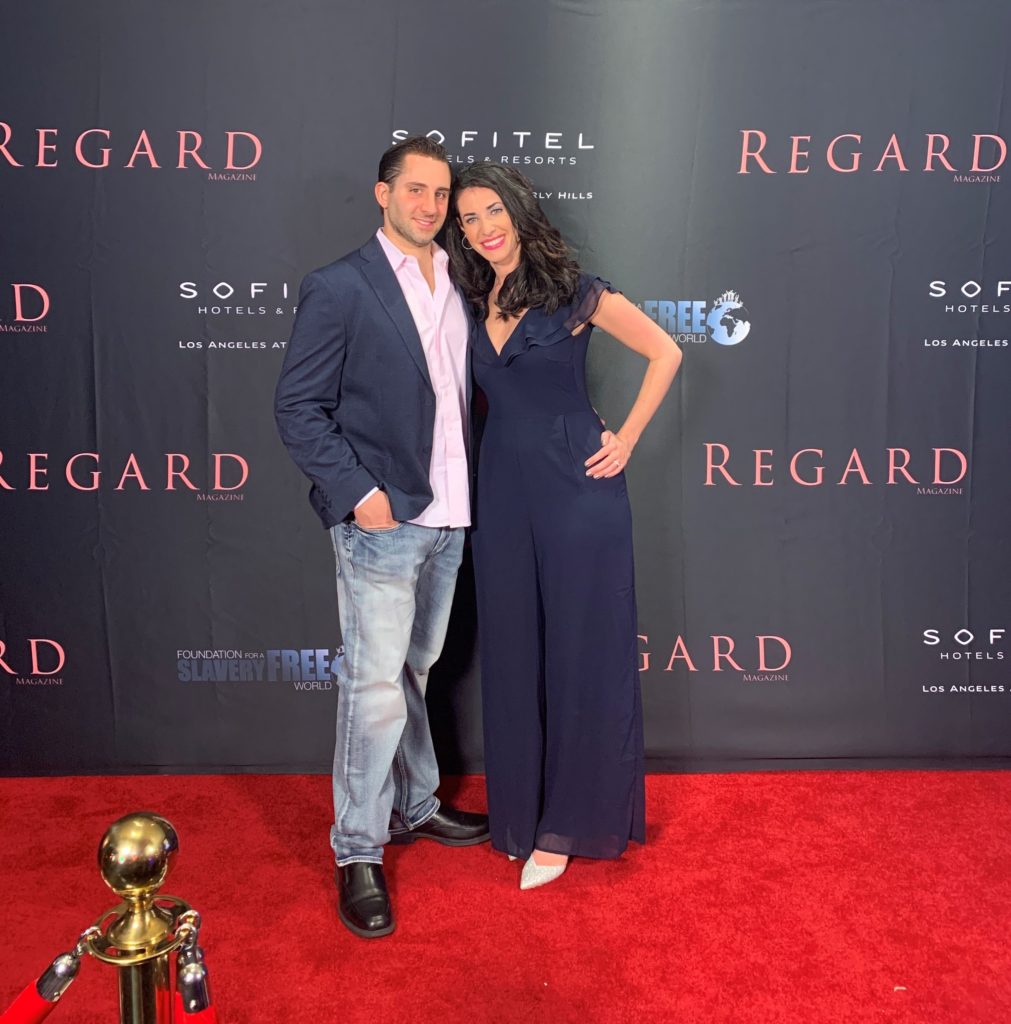There are so many questions that we might like to ask our dentist, but when you’re being drilled in the chair it seems as if all thoughts fly out the window except one… I hope this isn’t going to hurt! It was such a pleasure being able to get inside the mind of Dr. Charles Sutera to learn about why he chose his career path, how he’s helped others achieve their own award-winning smile, and more, no drill needed! Keep scrolling for more.
- They say the first thing people notice about you is your smile, speaking of firsts, what was the first thing that made you want to become a dentist?
It didn’t take me long to fall in love with dentistry. At the start of second grade, my teacher asked the class to write our future careers. I wrote “dentist” in the innocent scribble of a child. In October of that year, my teacher brought our class outside to plant tulip bulbs. She explained we had to plant the seeds now, but had to wait until April to see the flowers bloom. For a second grader, 6 months was an eternity. That was a powerful lesson. It taught me that a career is built consistently positioning the future.
- You’ve got quite a résumé with a number of disciplines, what was one of the most challenging parts of your education and learning process?
I was lucky to fall in love with dentistry early in life, but the journey of my career was much different than what I would have expected. As a child, I was drawn to dentistry because my dentist was successful and a role model. However, when i became a dentist, i realized there were aspects of the dental industry that were not ideal. I realized many people feared their dentist because of a history of discomfort. I realized that many technologies to achieve better dental results didn’t exist. I decided very early on in my career to challenge myself and the industry for improvement.
Most dentists think like dentists. It’s not necessarily bad; it just makes it difficult to innovate. I challenge myself to think differently. When I started blending principles from different industries is when my career really launched.
- What made your education unique?
My career started by being in the right place at the right time. I started dental school in 2008, one of the worst times in economic history. If I wasn’t in dental school at that time my career may have been different.
I was lucky. The timing allowed me to focus on developing myself, while the rest of the world was distracted by a devastating economy. When I graduated from dental school, I created a unique plan to reinvest my income. My motivation was to develop unique skills so that I would always be of value for patients. I began reaching out to all the top specialists in the country, writing hundreds of emails, making dozens of phone calls, and numerous inquiries to the biggest names in dentistry. I had a very simple request: I wanted an opportunity for direct mentorship either in their practice or one of their courses. Surprisingly, many of these leaders were open to mentoring a young, ambitious dentist.
For years, I reinvested everything I earned into flying around the country to train with the most renowned dentists in their respective specialties. If they were a top specialist in the country, I was probably directly mentored by them very early on in my career. No other young dentist trained like that.
- Fixing someone’s smile can definitely change their life. Can you tell us about a time where a drastic change was made to someone’s smile and how it affected them afterwards? Emotions, work life, etc?
The effect that patients tell me I have on their life makes me very proud. We’ve helped patients who were going through a divorce begin to smile again. We’ve helped entrepreneurs who were not smiling in interviews take their career to a new level. And we’ve helped a 16-year-old girl overcome a lifetime fear of needles. The point, is my work sometimes is a spark. However, it is the patient that ignites their own success. Seeing that process is what I find most fulfilling.
- Are there any tips you have for us folks at home on taking care of our smiles?
I always try to simplify success. If a patient brushes twice a day, flosses once, and is mindful of things like sugar, alcohol, and smoking…that’s success. If they focus on those keys to daily life, they are preventing the lion’s share of pitfalls that affect their oral health.

- Can you tell us a bit about your practice, location, and what patients can expect on their first visit?
So a great first visit is just like the start of any great relationship. Relationships are built on communication. Patients have a positive experience when expectations are clear. By setting clear expectations and following through on them, it establishes trust and reduces anxiety.
However, in my opinion, that’s not enough. At my office, each patient has at least two staff members dedicated to them during their visit. We have refreshments ready for patients, as well as weighted blankets, noise-canceling headphones, and good conversation. You name it and we probably have thought of it. The operatories are designed in what we call “cinema style.” All the equipment is hidden in decorative cabinets. There isn’t even a dental light on the chair. Patients sit comfortably in front of panoramic windows that overlook a picturesque valley, and they can watch their choice of programming on a 60-inch cinema style television.
- A lot of people are afraid of the dentist, can you give us any tips on overcoming the fear?
Some studies show that up to 75% of Americans experience some level of dental related fear; what’s worse is that 20% avoid dental care because of it. That’s a lot of frightened patients and a lot of people going without dental care because of their fear. Everyone has something in life that they fear…absolutely everyone. For some people, dentistry is their biggest fear. Like all fears, overcoming dental fear requires the reinforcement of trust. Many people fear the dentist because of their experiences in the past. As they sequentially accumulate positive experiences, the fear begins to fade. The best advice is to find a dentist who is empathic, who has experience working with dental anxiety, and begin the process of rewriting your fear today.
- Can you tell us about some of the technology involved in fixing smiles?
A big part of cosmetic dentistry going forward will be focused on blending beauty and function. Function matters. I see so many people that have beautiful smiles but they have headaches, they have soreness, or they clench and grind their teeth. These are all signs that things aren’t working together ideally. A technology that dentistry borrowed from orthopedics is called a T-scan. It helps dentists analyze a patient’s bite with a computer to prevent TMJ pain, clenching, or grinding. T-scan is a technology that I’d like to see more dentists incorporate into their practice in the future.
- What are some of your favorite products that you use?
There’s so many great products on the market today. The basic essentials come down to having a power toothbrush and floss. Everything else is a bonus, but those are the minimum must-haves for 2020.
- And the one probably everyone wants to know, what toothpaste do you recommend?
The big news with toothpaste is… the brand doesn’t really matter; what matters most is the fluoride content of the toothpaste. If it doesn’t have fluoride, you’re at significantly higher risk for cavities. Other than using a fluoride toothpaste, as long as you consistently brush twice daily, you’re probably getting the full benefits of toothpaste.
- What are some of the most famous faces you’ve worked on?
Well, because of HIPAA regulations, i can’t be specific, but what i can tell you is I have comfortably sedated high power CEOs who trembled in fear at previous dental offices. I have helped Hollywood celebrities enhance the beauty of their smiles. And I have healed people with debilitating TMJ pain. Over my career, I’ve had the wonderful opportunity to treat patients from all walks of life from homeless to ultra-wealthy. However, the reality is, regardless of success, everyone has the same basic needs. Every patient desires comfort, respect, and a result that is the best version of themselves.












